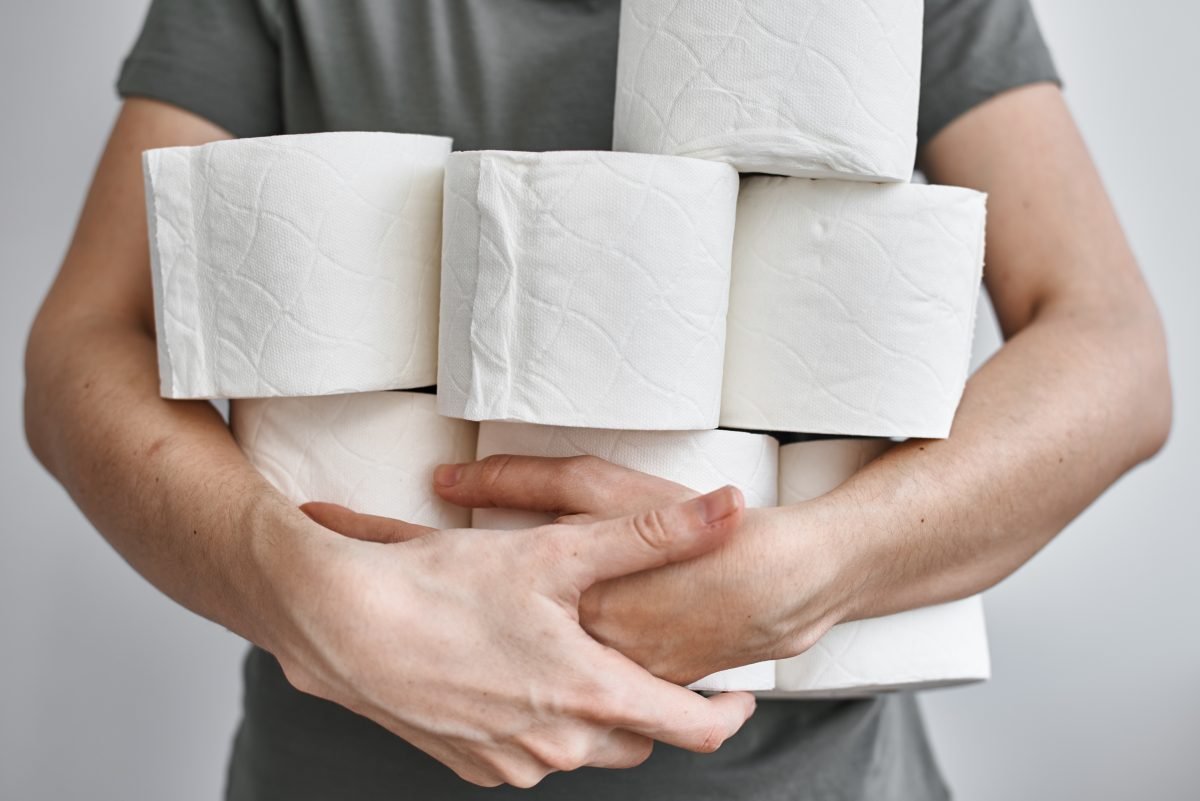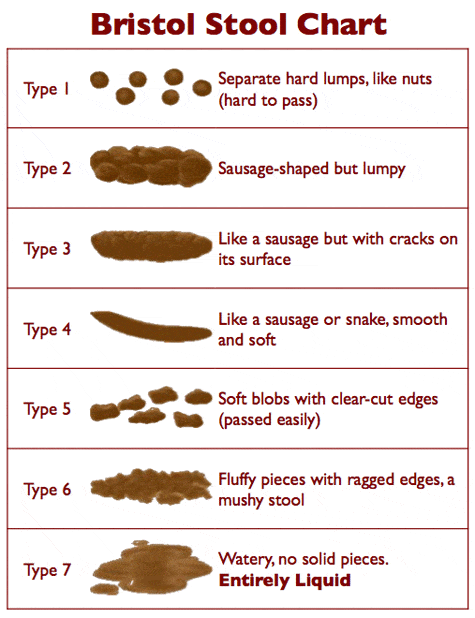What is IBS-D, and how can you manage it?
- Treatments, Testing and Diagnosis
You may have IBS-D if you experience mostly diarrhea as part of your IBS symptoms.
This article will discuss the causes, how it is diagnosed and how to manage it.

What causes IBS-D?
The exact cause of IBS-D is unknown and often multifactorial.
Some possible causes include (1):
- Food moving through your gut too rapidly. This results in reduced water absorption in the gut, leaving stools more watery.
- You may develop it after a gut infection, referred to as post-infectious IBS.
- Small intestinal bacterial overgrowth (SIBO)
How is IBS-D diagnosed?
It is diagnosed in the same way as all types of IBS.
Your IBS ‘type’ is determined by the ROME IV guidelines. Over 25% of your stool must be type 6 or type 7 on the stool chart to have IBS-D. You will also experience type 1-2 stools for less than 25% of the time (2).

How to treat IBS-D
While there is no cure, you can manage the symptoms. Management techniques will be individual to you.
Dietary Changes
Limiting foods that stimulate the gut and cause diarrhea can help. It can be helpful to keep a food and symptom diary to identify your triggers.
Common triggers include (3):
- Caffeine
- Alcohol
- Nicotine
- Spicy foods
- Fried and fatty foods
- Artificial sweeteners such as sorbitol and xylitol
As diarrhea can lead to dehydration, always make sure you drink plenty of water to avoid this.
The Low FODMAP diet
A diet low in FODMAPS has been shown to relieve IBS-D symptoms (4, 5).
It is restrictive and difficult to follow by yourself. Always work with a registered dietitian whilst on the low FODMAP diet.
Medications
Your doctor may recommend over-the-counter treatments or prescribe you a medication to manage your IBS-D, including (6):
- Anti-diarrhoeal, i.e. Imodium (loperamide)
- Antidepressants to slow down motility and reduce pain
- Antispasmodic to reduce bowel spasms and pain, i.e. Bentyl (dicyclomine) and Levsin (hyoscyamine)
- Antibiotics to decrease bacterial overgrowth and diarrhoea, i.e. Xifanxan (Rifaximin)
- Specific IBS-D drugs, i.e. Viberzi (Eluxadoline), Lotronex (Alosetron)
- Soluble fibre supplements that contain psyllium, i.e. Metamucil
- Peppermint oil
Remember that you should always talk to your doctor before taking any medications.
Probiotics
Certain probiotics may help relieve IBS symptoms. There are no official recommendations on which strain and species would benefit IBS-D (7).
However, some probiotics have been proven for treating IBS-D symptoms:
Florastor® (Saccharomyces Boulardii), a yeast probiotic, effectively regulates the number and consistency of stools in those with IBS-D (8).
TuZen® (Lactobacillus Plantarum CECT 7484) has been shown to reduce abdominal pain, bloating and improve people’s quality of life with IBS-D (9).
The multi-strain Bio-Kult® probiotic contains 14 different bacteria. It improved stool frequency and abdominal pain in people with IBS-D (10).
Stress
Lastly, stress and anxiety play a significant role in some cases of IBS (11).
Relaxation techniques such as meditation, yoga (12) and cognitive-behaviour therapy (CBT) can reduce IBS-D symptoms.
Regular exercise can positively impact your gut microbiota as well.
Summary
IBS-D occurs If you experience mostly diarrhoea alongside your other gut symptoms. The cause of your IBS-D may be multifactorial.
Working with a Registered Dietitian can help you identify your triggers. This means that you can work together using management methods tailored to you.
Management methods may include diet and lifestyle changes, including the low FODMAP diet, medications and stress management techniques.
Article written by Leeona Lam and edited by Beth Willson BSc Hons RD Surgical Dietitian